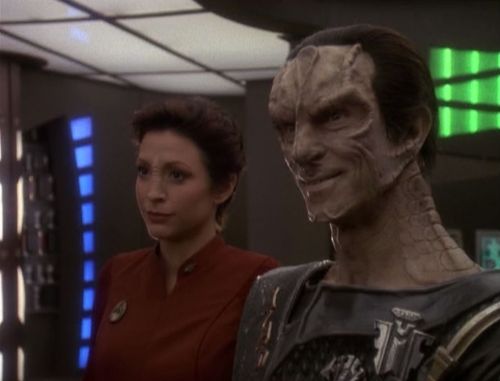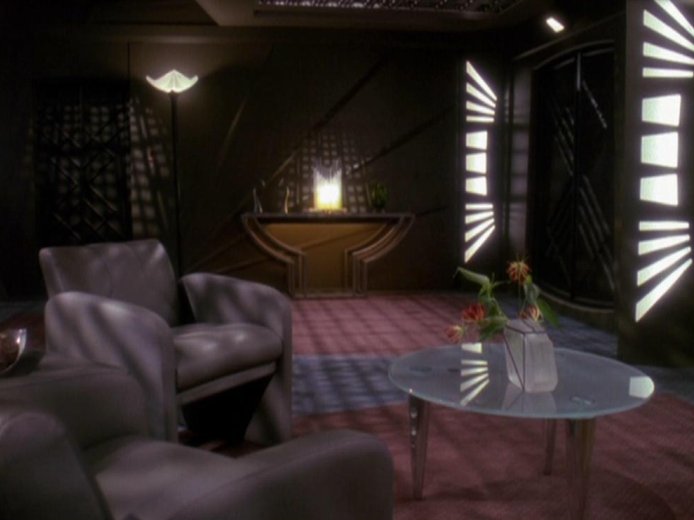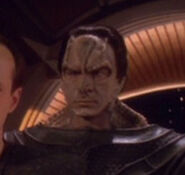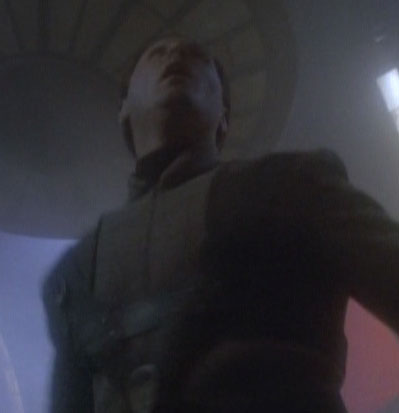It's Day Four of
NaNoWriMo (National Novel Writing Month, in which participants try to write 50,000 words of a novel in 30 days). It's still early, so I haven't done my writing for today yet, but as of last night I was up to 7,500 words. And I'm loving it!
Here's what I've got ready so far:
September 21, 2015
I've been kidnapped.
I have no idea where
I am; this could be absolutely anywhere on earth. The room they've locked me in
doesn't look Western, but then you can't always go by architecture and
decorating. For all I know, if I could get out I could walk home. Or I could be
in a remote corner of Afghanistan or Ethiopia or Peru.
It's a long story how
I got here, but this is the first time I’ve had a chance to write anything down.
I'll try to remember everything.
Chapter One
It started in Chicago.
I
met Derek at a conference on Linguistics. He shared my passion for making the
world a better place, my vision for our field’s potential to solve major social
problems. Other attendees called us both idealistic dreamers, and Derek and I
hit it off almost immediately.
On
the last day of the conference we grabbed some coffee between sessions.
“Lunch?”
he asked.
I
looked down at the table beside the coffee pots, at the cookies and the squares
of fruit and cheese impaled with toothpicks. “Sure hope not,” I smiled. “But I
wouldn’t worry, it’s only nine-thirty.” I grabbed a cookie.
“No,”
he said, “I meant, what are you doing for lunch? I’d like to take you out.”
“My
cousin doesn’t get home till five-thirty, so I have the afternoon to kill. I just
need to call my kids first, after the last session.”
“You’re
lucky you can stay with your cousin,” he said. “Hotels here ask for your
firstborn.”
“Which
would leave you out on the street,” I replied. Derek didn’t have any kids.
“I’d
just kidnap one of yours,” he shot back. “Forge a birth certificate. They’d
have no way of knowing.”
“Good
thing school’s in session, then, and my kids are back home safe in New
Hampshire.”
“Alone?
How old are they?”
“Oh,
no, they’re with their grandmother. They’re eight and ten.”
“Sweet,”
he said. “I like kids. But I’ll have to settle for their mom for now. One
o’clock okay? I’ll meet you out front.”
He
took me to a quaint-looking German place in the ground floor of a red-brick
nineteenth-century meat-packing building. “You have to try the rouladen,” he
said. “It’s the best I’ve had since Frankfurt.”
“Oh,
when were you in Frankfurt?” I asked. “I’ve never had rouladen, but I’ve heard
it’s good.”
“I
went to university there, undergrad.”
“Oh.
Any particular reason? Have relatives there or anything?”
“No.
Well, my ancestry is German - Bavarian, but that’s going way back. I’ve just
always liked Germany, so when I had the chance to do my college there, I took
it. Are you warm enough?” He glanced at the fan that whirred at the end of a
long rod reaching down from the ceiling twenty feet above us, then studied my
face.
I
lowered my eyes for an instant and confirmed my suspicion: my nipples stood out
in two chiseled points under my clothes. Note
to self, I thought, feeling myself blush, don’t wear a knit bra and a knit top together around cute, intelligent
guys. But I’d brought a sweater, so I put it on.
“What’s
this vision you keep hinting at,” I said, recovering my dignity, “about
linguistics as a tool for social change?” I asked not only to change the
subject, but because I was burning to know. I myself wanted to find the
universal language patterns that would allow me, in partnership with a good
computer programmer, to create software that could translate just about any
language into just about any other language. The possibilities were staggering.
This software, loaded on either a regular computer or a small, tough device
built for the purpose, could empower indigenous businesspeople all over the
world. It could let ordinary individuals build relationships across cultural
boundaries, lessening international tensions on the grassroots level. It could
reduce war, oppression and poverty by building bridges and eroding
misunderstanding, fear and hate. But I wanted to hear what Derek had in mind. I
knew it was going to be good.
His smile showed his dimples. I was beginning to suspect
that when the dimples didn’t appear, he was just being polite. I smiled, too,
because I had a feeling I was going to have plenty of time to test that hypothesis.
“It’s simple,” he answered. “Purity of
language. I’m applying for a grant for it.”
“What do you mean?”
“Well, it starts with a study to find the
pure form of the language. I’m hoping to begin with German first.”
“Naturally. You must be fluent.”
“I am, but that’s not why. German is a whole
lot less corrupted than English or even Spanish. It’s a good place to start.
The world isn’t ready for the purification of English yet.”
I still had no idea what he was talking
about. “So you find out the pure form a language, and then what do you do after
that?”
He shrugged. “It’s a long shot, I know,
especially with the way things are trending lately, but the hope is that
people, governments, will embrace the pure form of the language and reject the
corrupted versions.”
I wasn’t sure I liked where this was going.
“For what purpose? What would that do?”
“Our cultures have been weakened,” he
explained. “It’s insidious. I’m not sure if you’ve ever looked into it, but you
may be surprised how many words from inferior races have gotten in there, even in
German.”
We managed to part on friendly terms, mostly
because for the rest of the meal I pasted
a smile on my face and just listened and made small talk. It wouldn’t do to
stalk away in a self-righteous huff: it was kindness that would reach this man,
if anything could.
Finally it was over. We confirmed that we had
each other’s numbers, and I took a taxi back to my cousin’s.
I paid the driver and got out, and then
realized I’d had him stop in front of the wrong building. Should have just
given him the address and let him do his job. Fortunately, he didn’t hang
around to watch me walk. After two buildings I got out my copy of Connie’s door
key and turned to go up the front steps.
And that was the last I saw of Chicago.
They must have
drugged me, I guess, because the next thing I knew, I was waking up. I was
lying on the floor in a big, noisy, busy place. The first thing I saw was lots
of pantlegs and shoes, walking about in different directions. They were scuffed
and smudged and dusty and worn, but that's all I had a chance to notice before
somebody noticed me, and then I was looking up at faces. They looked smudged
and worn, too, and unless it was my imagination, they all had nearly identical
scars on their noses. Maybe they didn't and it was just the effect of whatever
I'd been drugged with. I didn't get a really good look at them, anyway, because
after a few seconds all those people scattered and two others came along.
The new guys, both
male, wore some sort of grey uniforms and their faces were hideously scarred.
They had scars instead of eyebrows, scars on their foreheads, scars on their
chins... The scarring looked so even, and was so similar on both sides of their
faces, and even so similar on both men, that I began to suspect as soon as I
saw them that they were victims of some sort of horrific ritual. I couldn't
help feeling sorry for them.
"How did you get
here?" one of them asked. He sounded surprised, but his face didn't show
it. No wonder.
I sat up. "I
don't know."
The other guy offered
me his hand, and I took it and got to my feet. "Where is 'here', anyway?" I
asked, pulling my purse onto my shoulder.
"It's a big
station," the first guy answered, "Easy to lose your way. Did our
workers hurt you?"
"No. No, not at
all. I just..." I stopped speaking when I realized I couldn't explain, I
had no idea what had just happened.
The second guy, the
guy who had helped me up, was looking at something in his hand, some sort of
gaming device I'd never seen before. "You're not registered as a guest
here," he said. "Is your ship still here? I'm afraid you'll have to
go back to it immediately." He grabbed my arm and started walking. He had
the kind of grip I've seen cops use when they're arresting a guy who's drunk
out of his mind, the kind of grip that means you've got to start walking if you
don't want to be dragged.
"I...I don't
know," I replied, trying to keep my feet under me. "I don't think I
came on a ship. I've - " I was about to say I'd been kidnapped, but then I
wondered if they'd been kidnapped, too, and ritually scarred and forced to work
here. "I think I got here by accident," I said instead. "I'd be
happy to get out of your way as soon as possible."
"I think our
commander would like you," said the first guy, walking on the other side
of me and looking at my breasts. Men and women scattered before us. They did
all have nearly-identical nose-scars, but they didn't look nearly so bad after
seeing these guys.
"He likes
Bajorans," said the second guy.
"He may like a
lost human, if she's lost."
"Federation
people don't just get lost in Bajoran orbit," the second guy countered.
"She's a spy."
"Even the
Federation makes some attempt to hide their spies. If she were a spy, she'd be
a registered guest with a mouthful of excuses. What's your plan, to throw her
out an airlock?"
"It's an
efficient solution."
"It's a wasteful
solution, either way. Either she's a spy or she's lost. If she's a spy she
ought to be debriefed, and if she's lost, the cat may want to keep her."
"The cat?"
I repeated, trying to make sense of the conversation, but they didn't explain.
"Let's take her
to Tommy, then," said the second guy, "but I doubt the cat will like
her."
"I'm not a
Federation person," I objected, not at all sure I liked the idea of being
labeled a spy and 'debriefed.'
"The Federation
would probably disagree with that statement," the second guy replied. We'd
come to the edge of the big room, and he led me through a large open doorway
onto a spacious indoor balcony. I couldn't see over the edge, but from the
sound of it, the floor below us was full of people.
"What Federation
are we talking about, anyway?" I asked, as we turned right. The wall was
on our right now, and the railing on our left. The balcony stretched out in
front of us like a concourse in an airport.
"It makes no
difference to us," said the first guy, who had dropped back at the doorway
and was walking a little bit behind us. "You can give us any story you
like because we don't need to know who you are or what you're doing here. But
Glenn Tommy does. You may wish to be much more forthright with him." I was
trying to place his accent. To my New Hampshire ears his "Glenn
Tommy" sounded like 'Glinn Tahmmy'. Midwest, probably, and not too far
north. Southern Illinois, maybe.
Two minutes later we
stopped. There was a door there and it must have been connected to a motion or
weight sensor because it opened with a swishing sound. The second guy still had
my arm, and he pulled me inside with him. The first guy stayed on the balcony,
and the door stayed open.
“What is this place?”
I asked, looking up at that scarred face and trying to keep my voice steady.
The guy let go of my
arm and turned to leave, then stopped and looked back at me. “Interrogation,”
he answered. Then he went out and the door swished shut.
Chapter Two
I was surprised to see the door
close between us, as close as I was behind him. Fighting panic, I walked right
up to it, but it remained shut. I turned around and gave myself a head start
and approached it again, walking at a good, confident pace, but it still didn’t
open. I stuck my fingers as far as I could get them into the crack in the
middle, where the two halves were supposed to slide away from each other, and
pulled as hard as I could, but of course it wouldn’t budge.
It’s probably just that I’m not heavy enough, I told myself with an effort. I placed both hands on the
corner of the door frame, braced myself and pushed my feet hard against the
floor.
“I apologize for making you wait.”
I jumped, half-screamed, and wheeled
around to see who had said that. Half a second later I felt the blood rush to
my face. I had no reason to think I was really alone in here, and would stay
that way, but now somebody had walked up and greeted me and I had made a fool
of myself. It was a new guy, wearing the same grey uniform as the other two
guys, and with the same scars on his face. But I was beginning to wonder if
they really were scars after all.
“I didn’t mean to startle you,” he
said politely. “My name is Craig Tommid, but you may call me Glenn.” He had
that same south-by-midwest accent.
“Nice to meet you, Glenn,” I said,
shaking his hand. “Faine Channing.” He had a nice firm, confident grip.
“Not Glenn,” he said, looking me in
the eye. “Glynn.”
“Oh, Glynn, sorry. Do you not like
Craig?” I asked, taking this opportunity to get a good look at him. Whatever
those things on his face were that looked like scars, he had them on his neck,
too, and the ones on his neck couldn’t be scars. They looked more like fins
there, like the fins on the back fenders of some old cars. The others had had
them, too.
“Who is Craig?” he asked, tipping
his head slightly and giving me a quizzical frown.
“Why are you called Glynn if your
name is Craig? Do you not like Craig?”
“My name is not Craig,” he
explained. “It’s Kreg. You would spell it K-R-E-G. Kreg Tahmid. Glin is my
title. It’s a military rank.”
“Glin is a military rank?” I asked,
confused. Or maybe he was the one who was confused.
“Yes. Can I get you anything?
Coffee, tea…”
“Water,” I nodded. “Thank you.” It
was hot in this place.
“This way,” he said gallantly,
bowing slightly and gesturing toward an open doorway. “With lemon or without?”
“With, please,” I answered,
following him out of the small, rather plain room into a larger one, furnished
with all sorts of things I didn’t recognize. It would take me several minutes
to take it all in.
“Ice, I assume?” he continued,
walking to a small alcove in one of the walls.
“Yes, please.”
“Ice water with lemon?” he asked
again, standing in front of the alcove with his back to me.
“That’s right.”
“Hot fish juice,” he said, still
facing the alcove.
“No, thanks!” I laughed. “Ice water
is fine.” Maybe it was the power of suggestion, but I suddenly thought I smelled
the stench of a fish market.
He turned around, my ice water in
one hand and a steaming mug in the other. The smell was coming from the mug. He
gave me the water.
“That was quick,” I commented, and
took a sip. It felt good, even if the fish smell made it taste bad. “What
military is that?” I asked.
Glin Tahmid gave me a look like I
wasn’t fooling him, and answered, “Ours, of course.” He crossed the room and I
followed, preferring even his company to the feeling of being alone in this
room full of strange objects. “Please have a seat.” He waved his mug toward an
odd-looking stool on the near side of what must have been a desk.
I sat, not wanting to be rude, but I
had no intention of sitting for long. I was going to finish my water and leave.
He didn’t immediately go around the
desk and sit down, himself. For a moment he lingered beside me and briefly
touched my shoulder. I heard a hissing sound and thought I felt a strange
sensation in my neck, but I couldn’t be sure.
“What was that?” I asked.
He ignored the question and walked
to his own chair and settled into it. He drank from the stinky mug before
asking, “Tell me your name again?”
“Faine Channing.” My water was half
gone already.
“Your business on this station?”
“Don’t have any,” I answered
honestly. “Like I told the other guy, I’d be happy to get out of your way. I
appreciate the water.” I held up my glass. “But I don’t want to take up your
time. I can be on my way as soon as I finish this.”
“On your way where?” He settled back
in his chair, looking comfortable, and held his mug with both hands like he was
enjoying its heat.
“Back home,” I shrugged. I’d need to
pick up my suitcase from Connie’s first, but that wasn’t something to bother
Glin Tahmid about.
“Where is home?”
“New Hampshire.” I could have my
suitcase shipped, if necessary. There was no point in complicating matters
here.
“And where is that?”
“New England,” I answered. “North of
Massachusetts, west of Maine.”
“A colony, perhaps?”
“Yes, actually. New Hampshire was
one of the thirteen original colonies.” So this fellow had an interest in
history, then. I hoped I wouldn’t be around long enough to find that bit of
trivia useful.
“You admit that you have no business
on this station,” he continued. “Why are you here?”
“I didn’t mean to be here,” I said
truthfully, realizing how lame that must have sounded.
“Transporter malfunction?” he
offered.
I opened my mouth but didn’t know
what to say. It wasn’t that I didn’t understand his words, it was just that if
you thought about it, those words didn’t exactly mean anything. It was an
official-sounding way of saying that my transportation screwed up. “You could
say that,” I agreed at last.
“And where did you transport from?”
“Chicago.”
“Another colony?”
Back to history again. “Nope,
Illinois was never a colony.”
“Chicago is on Illinois, then?”
Oh, great! I
thought. This guy is nuts. I’d been
suspecting that ever since he’d said Glin was a military rank. “Chicago is in Illinois,
yes,” I answered patiently.
“Tell me about Illinois.”
“Well, it was settled by the French,
I think. The name comes from Illini. I guess the Illini lived there originally.
I don’t know much about it, to be honest with you."
“Honest with me is what you should always
be,” he answered. I wondered if the menacing edge in his voice was really
there, or it was just my nerves, imagining it.
“Of course,” I smiled, forcing
myself to meet his eyes. I finished my water.
“Where is Illinois?” he demanded.
Does this mean I’m no longer in Illinois, or even close to
it? I
thought. No, it just means I’m locked in
a room with a crazy person. Aloud, I said, “West of Indiana, south of
Wisconsin, east of the Missisippi River and north of…” I shook my head. “Gee, I
don’t even know what it’s north of.”
“I
see you just want to play games,” said Glin Tahmid. “Guards!” He took his eyes
off me, for once, and focused somewhere behind me.
I
turned and saw two more guys walk in through the same doorway that we had,
again with the grey uniforms and the facial scars, or whatever they were, and
the neck fins. They marched right up to me and stood on either side of me, and
I began to stand up. Each guard grabbed one of my arms, and they pulled me the
rest of the way to my feet. One of them took my purse away and set it on the
desk, and the other one produced a metal rectangle about two feet long. While I
was still trying to figure out what it was, they’d locked my wrists in it. How
foolish I’d been to think I was going to be able to leave when I’d finished my
water!
The
guard on my right let go of my arm, and the one on my left pulled me away from
the chair. I stood there on the open floor with my hands in the strange
rectangular handcuffs, and looked at Glin Tahmid. All at once it occurred to me
that he may not be crazy after all. All those stories about secret government
research programs, of genetically engineered humans and all that, might just be
true after all. Not that that would explain how I’d gotten here.
I
cleared my throat, hoping that would keep my voice from squeaking. “Glin,” I
said, “I don’t want to play games with you. I just don’t know how to answer
your questions.”
“They’re
simple enough questions,” he replied. “All I want is the truth.”
“I’m,
um, not in a position to argue,” I said, hoping to get back on his gracious
side, then added, “obviously.”
“Obviously,”
he agreed. “So, if you’re feeling cooperative, tell me, where were you born?”
He made a small signal to the guards with his hand.
“New
Hampshire.” I couldn’t help feeling like we’d just started the whole bizarre
conversation all over again.
“The
problem,” he answered in a superior tone, “is that I have no idea where that
is, or what that is. Is it a city? A plateau? A continent? A planet?”
“Oh,”
I said, “it’s a state.”
“A
state. A sovereign governmental entity?”
“No,”
I answered, “just one of the fifty American states.” For a split second I
wondered if my little ‘transporter malfunction’ could have taken me to a
foreign country, but then I dismissed the thought. Glin Tahmid and the first
two guys all had American accents. He was playing dumb, then, and playing some
sort of head game with me. And as I had said to him, I wasn’t in any position
to object.
“American,”
he repeated. “At last, a name I recognize. Would it be accurate to say that you
were born in a region of North America called New Hampshire?”
“Yes,
it would.”
“Good.
And are you currently living in New Hampshire?”
“Yes.”
“Good.
When did you come to Terra Knorr?”
“I…don’t
know what Terra Knorr is,” I said hesitantly.
“This
station. Perhaps your government calls it by a different name, but we call it
Terra Knorr. When did you come to this station?”
“Oh,
just a few minutes ago.”
“On
what ship?”
“I
don’t know,” I answered nervously, then added quickly, “I was unconscious.”
“You
were transported unconscious to keep you from knowing about your travel
arrangements?”
“That’s
right,” I said. It sounded like a plausible explanation, at any rate.
“Who
made those arrangements?”
"I
don’t know that, either.”
“Well,
then, who was your contact?”
“I…it
may have been a guy named Derek Dellinger. At least that’s the name I knew him
by.”
“Starfleet?”
“I’m
sorry, I don’t understand the question.”
“Is
Derek Dellinger a member of Starfleet?”
“I
couldn’t tell you that,” I answered, then quickly explained, “I mean, because I
don’t know. What is Starfleet? I’m not familiar with it.”
Tahmid
signaled the guards again, and the one on my right said quietly, “Hold still.”
The left guard held both my arms, above the elbows, and the right one reached
up and took a hold of the neck of the top I was wearing. It took me a few
seconds to realize that he had a knife, and was cutting it off me. Soon after,
it fell to the floor, and for the second time that day I wished I had chosen a
thicker, more modest bra. But I didn’t have much time to dwell on that, because
as soon as he was done with the top, the guard started cutting my slacks. He
must have had a very sharp knife and a lot of practice, because all it took was
two quick, neat cuts down the sides and the slacks had joined the top on the
floor. I was left standing in my shoes and panties and bra and the strange
handcuffs that held my wrists about shoulder-width apart.
Tahmid
gestured to the guards again, and asked me, “Is Derek Dellinger a member of
Starfleet?”
“As
far as I know he’s not,” I answered, “but I’m not even sure if that’s his real
name.”
“Is
Derek Dellinger human?”
A
flag went up in my mind. I’d heard of this technique but never seen it in
practice. The idea was that they ask you several questions in quick succession,
all of which are easy and innocent and take yes answers. Then in the same tone
of voice they ask you to confess to a crime, hoping you’ll answer yes without
thinking and incriminate yourself. I took my time and repeated the question in
my head before answering. “Yes.”
“What’s
the last thing you remember before Terra Knorr?”
That
wasn’t a yes or no question, so he must have picked up on my hesitation,
realized I was onto his game. That gave me a fleeting sense of victory, until I
realized that he had just read me. Interrogators, of course, are supposed to be
very perceptive, but I had been subconsciously hoping this one wasn’t. I made a
mental note to try not to lie. “I’d just gotten out of a cab in Chicago,” I
answered.
“What
kind of cab?”
“A
licensed yellow Crown Vic.”
“Explain
the term ‘Crown Vic’,” he said, seeming relaxed again. “I’m afraid there are
many details of your culture I’m still not familiar with.”
“You’re
not – “ I began, then cut myself off. “I’m sorry,” I said, “Crown Vic stands
for Crown Victoria. It’s a Ford model, and it’s used, a lot of times, for
police cruisers and taxis.”
“A
vehicle, then?”
“Yes.”
“What
were you going to say?” he asked. “I’m not what?”
“Oh,”
I answered, “I was just surprised to hear that you’re not American. Your
English is so good, I thought you were.”
He
laughed, a dry, cold laugh, and said, “Oh, you thought I was American. And now
what makes you think that I may not be?”
“When
you said,” I paused, trying to recall his exact words, and gave up. “Something
about not being familiar with my culture.”
“How
perceptive of you,” he sneered. “I am not American.” He signaled to the guards
again, and almost immediately a strong hand smashed into my face. “In the
future you will refrain from sarcasm in this room,” Glin Tahmid ordered.
“Yes,
Glin,” I answered breathlessly, hoping to prevent any further blows. I wondered
what I’d said that he’d taken as sarcasm, and decided to leave the subject of
nationality alone as much as possible. Warm liquid trickled from my right
nostril to my lip. It was blood.
 Ellie gave me a very nice introduction, both in the podcast and on MWOW's blog, and I read portions of my novel Resist the Devil.
Ellie gave me a very nice introduction, both in the podcast and on MWOW's blog, and I read portions of my novel Resist the Devil.







